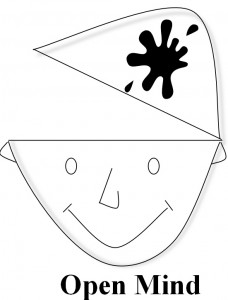Time to confess one (of many) of my bad habits.

Take technology for an example.
I have a terrible habit of ‘rape-and-pillage’ approach learning technology. I lack patience and move restlessly from one to the next. This gives me the illusion that ‘I Know’ about what I have just been through. But when it is time to apply – I fail. Simply because I don’t know enough.
I am a technology dilettante – and not proud of it.
Dilettante is a person who claims an area of interest, without real commitment or knowledge. Or a person with a general but superficial interest in any art or a branch of knowledge.
Being a dilettante is not always bad. We cannot and do not want to be experts in everything we are interested in. Apart from driving us insane, I don’t think we live long enough to become experts in everything we are interested in.
The key is not to kid ourselves. It becomes problematic when we really think and believe we know enough of something, when we really don’t.
Here are some general examples:
Microwave Oven: Most of us use it to heat food. We know and believe that it heats food. Beyond that most of us know little or nothing about what microwave does to the food and our health.
Here is just one of many studies: “Carcinogens in microwaved food”
In Dr. Lita Lee’s book, Health Effects of Microwave Radiation – Microwave Ovens, and in the March and September 1991 issues of Earthletter, she stated that every microwave oven leaks electro-magnetic radiation, harms food, and converts substances cooked in it to dangerous organ-toxic and carcinogenic products. Further research summarized in this article reveal that microwave ovens are far more harmful than previously imagined.
The following is a summary of the Russian investigations published by the Atlantis Raising Educational Centre inPortland,Oregon. Carcinogens were formed in virtually all foods tested. No test food was subjected to more microwaving than necessary to accomplish the purpose, i.e., cooking, thawing, or heating to insure sanitary ingestion.
Here’s a summary of some of the results:
- Microwaving prepared meats sufficiently to insure sanitary ingestion caused formation of d-Nitrosodienthanolamines, a well-known carcinogen.
- Microwaving milk and cereal grains converted some of their amino acids into carcinogens.
- Thawing frozen fruits converted their glucoside and galactoside containing fractions into carcinogenic substances.
- Extremely short exposure of raw, cooked or frozen vegetables converted their plant alkaloids into carcinogens.
- Carcinogenic free radicals were formed in microwaved plants, especially root vegetables.
- Decrease in nutritional value
Russian researchers also reported a marked acceleration of structural degradation leading to a decreased food value of 60 to 90% in all foods tested. Among the changes observed were:
- Deceased bio-availability of vitamin B complex, vitamin C, vitamin E, essential minerals and lipotropics factors in all food tested.
- Various kinds of damaged to many plant substances, such as alkaloids, glucosides, galactosides and nitrilosides.
- The degradation of nucleo-proteins in meats.
(Source healthscience.com)
Tap water:
Most people assume that when they turn on their kitchen tap they are getting clean safe healthy drinking water. Unfortunately this is often not the case. Regardless of the original source of tap water, it is vulnerable to a number of different types of impurities. Some undesirable substances found in water include radon, fluoride, and arsenic, iron, lead, copper, and other heavy metals which can occur naturally. Then there are other contaminants, such as fertilizers, asbestos, cyanides, herbicides, pesticides, and industrial chemicals, may leach into ground water, water through the soil, or into any tap water from plumbing pipes. In order to kill bacteria, adjust pH, and eliminate cloudiness, water authorities will add substances like chlorine, carbon, lime, phosphates, soda ash, and aluminium sulphate Yet there are still instances of our tap water containing viruses, bacteria, and parasites. So when we are told that the individual levels of substances in water are well within ‘allowable’ limits, the total of all contaminants present may still be harmful to your health.
Business:
In business, we expect our expertise and passion for our offerings to bring in a lot customers. Our real expertise in marketing, selling and branding etc is limited, although our dilettante tendencies will make us believe that the little we know is everything that there is to know. Then we blame our putative customers for not showing up!
Zen and the beginner’s mind
“In the beginner’s mind there are many possibilities; in the expert’s mind there are few.” – Shunryu Suzuki. In his book: “Zen Mind, Beginner’s Mind,” Suzuki describes his approach to Zen practice. It relates to having the attitude of an open mind, lack of prejudgment, a certain non-resistant grace, and a way of learning just as a novice would, even when studying at a higher level.
With the attitude of the beginners mind, we invite the highest possibility for change and growth. Of course, we are often tempted to think our way is the best way. But if we are serious about personal growth, we must consider staying open minded in order to invite incredible synchronicities for us and our business to grow.
+ Ravi Peal-Shankar



{ 0 comments… add one now }